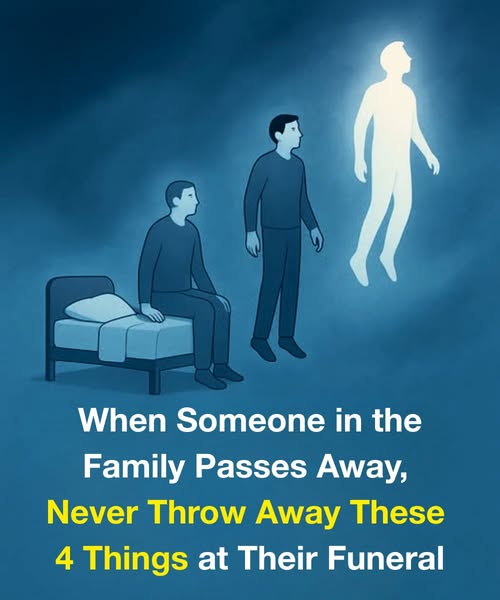
Losing someone you love changes the way you see even the smallest objects around you. Suddenly, things that once seemed ordinary—a mug, a note, a sweater—become priceless links to the person who is no longer here. Grief has a way of sharpening your awareness of how fragile and fleeting life is, and it reminds you that memory is both a comfort and a burden.
In the days or weeks after a funeral, it’s common to feel an urge to clear out belongings quickly. Some people want to “tidy up” as a way to cope, while others can’t stand the pain of seeing reminders everywhere they turn. But the truth is, what feels unnecessary in the haze of fresh grief can become a lifeline later. Preserving even a few meaningful keepsakes can bring warmth, healing, and a sense of connection for years to come.
Here are four types of items that are worth holding onto when someone you love passes away.
1. Handwritten Notes and Letters
There is something irreplaceable about handwriting. Whether it’s a letter tucked into an old book, a card written for a birthday, or even a sticky note left on the fridge, these small pieces of paper carry the unique imprint of a loved one’s hand. The loops, the scrawls, the quirks of their script—these are things no computer font can replicate.
When you stumble across one of these notes years later, it’s as if time folds in on itself. You’re not just reading their words—you’re touching a moment they physically left behind. Many people who have lost loved ones regret discarding these items too quickly. A small slip of paper might seem insignificant at the time, but it can later become a cherished treasure, something that makes you feel less alone on the darkest days.
2. Voice Recordings and Voicemails
We live in a digital age where voices are easier to preserve than ever, yet many of us take this for granted. A voicemail, a voice memo, even a short video clip can hold immeasurable value once a person is gone. The sound of someone’s laughter, the way they said your name, their rhythm and tone—these are details memory struggles to hold onto with precision.
Backing up these recordings ensures that years from now, you’ll still be able to hear their voice. For many grieving people, replaying a saved voicemail can provide comfort and closeness, like a thread stretching between the present and the past. Don’t assume you’ll always remember the sound of their voice; technology gives us a chance to preserve it.
3. Personal Belongings That Carry Daily Memories
Not every keepsake has to be large or obvious. In fact, the most powerful reminders are often the everyday objects that quietly carried their presence. A favorite mug, the sweater they always wore in the evenings, a pair of reading glasses, a worn chair where they sat every morning with coffee—these things carry the weight of countless unspoken moments.
Keeping a few personal belongings not only provides comfort but can also serve as heirlooms. Future generations may never meet your loved one, but they can touch the same objects, hold the same book, or sip from the same cup. In that way, belongings become vessels of memory, connecting past to present in a tangible way.
4. Family Photos
Photos may seem obvious, but they’re often more valuable than we realize—especially the ones with unfamiliar faces or unmarked moments. Each image is a record of family history, a piece of a story that may otherwise be forgotten. Preserving them is not just for yourself but for those who come after you.
It’s worth taking time to sit with older relatives and ask them to identify the people and places in photos. Without those conversations, faces can fade into mystery. By documenting names and stories, you ensure that the memories live on, not just in albums but in family history itself.
Why These Things Matter
Grief often comes with a powerful urge to purge. When someone dies, the shock and sadness can make their belongings feel overwhelming, even unbearable. But what feels like clutter in the moment may become priceless with time. These keepsakes—handwriting, voices, belongings, and photographs—are more than objects. They are anchors to memory, ways to honor a life and carry it forward.
A funeral marks the end of a life, but it is not the end of love. Preserving these reminders doesn’t keep you trapped in grief; it helps you weave your loved one’s presence into the ongoing fabric of your life. Someday, when the pain is less raw, you may find that holding a sweater, reading a note, or hearing their laugh again brings not just tears but also peace.
The truth is simple: what seems small today can become invaluable tomorrow. In grief, memory is the bridge that keeps us connected. And sometimes, all it takes is a letter, a voice, a photo, or a favorite mug to remind us that love never truly disappears.
